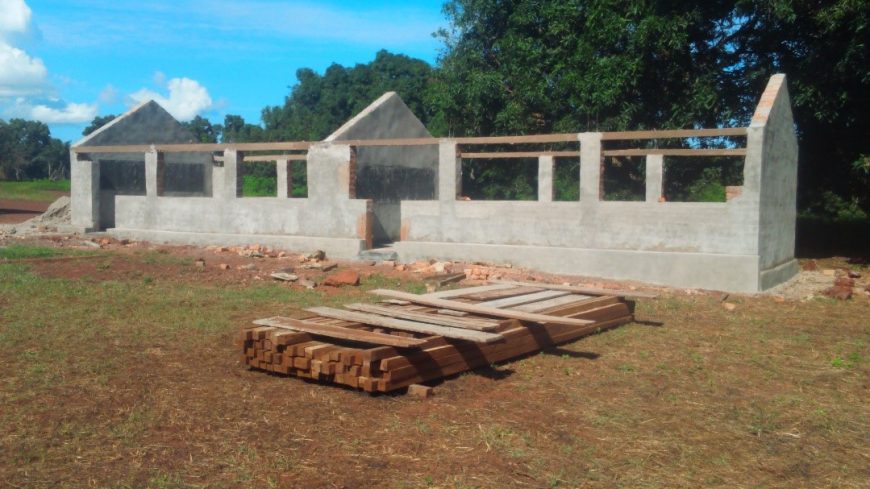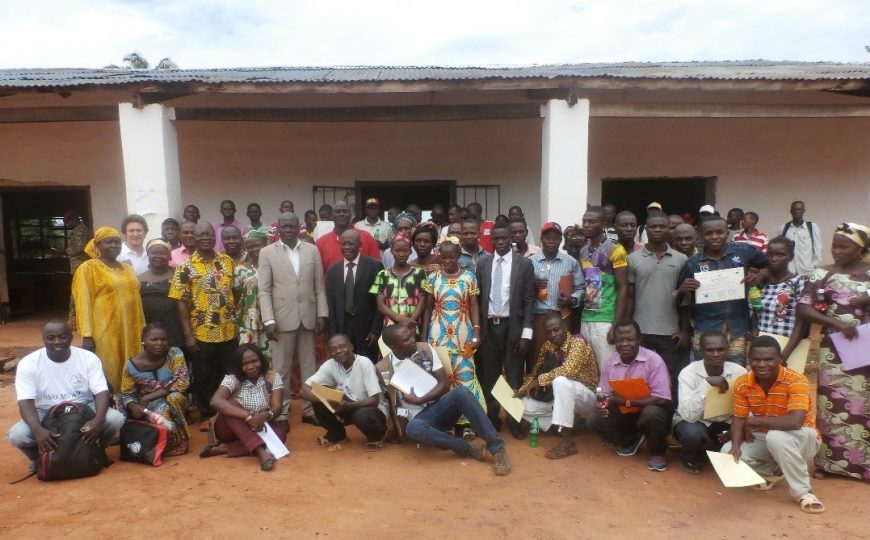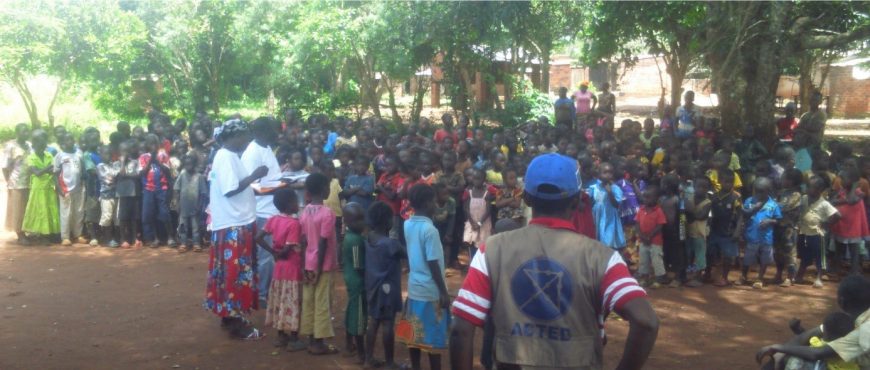With a security crisis gripping the Haut-Mbomou prefecture since 2017, the city of Obo has experienced a massive influx of displaced families from the neighbouring cities of Zémio and Mboki. Haut-Mbomou is the prefecture with the highest number of displaced persons in the Central African Republic in 2018.
Obo, a host city
While the city of Obo enjoys a certain stability compared to neighbouring municipalities, more than 7,000 internally displaced persons (IDPs) are now living in the various sites across the city. In order to enable all displaced children to attend school, ACTED has set up activities to support education in emergency situations, with financial support from the European Commission’s Directorate-General for Civil Protection and European Humanitarian Aid Operations (ECHO). ACTED’s teams are focused on strengthening the human and material capacities necessary to restore a safe educational environment for all school-age children.
Remedial courses and social and recreational activities
During the summer of 2018, ACTED trained 21 teachers in the local host communities who agreed to teach remedial courses in exchange for remuneration in line with the standards of the education cluster. After a week of training, these teachers took up their duties. Collectively, they taught more than 1,200 children— most of whom had dropped out of school— plus 339 who had never been to school before.
Every afternoon, two facilitators provide psycho-social support to these children, including the organization of recreational activities such as dancing, singing, reading, board games such as kissoro or checkerboard, sports or crafts, such as origami or the making of garlands. These activities aim to develop children’s creativity, strengthen their sociability, help them familiarize themselves with the rules of life in the community, stimulate their academic knowledge by applying them to recreational activities, and above all, calm them down and restore a sense of normalcy after the dramatic experiences they have had.

Rehabilitation of schools, classrooms and latrine blocks
ACTED has contributed to the rehabilitation of four schools, including 15 classrooms, hygiene blocks and school benches. Playgrounds now bear the colours of the country, a symbol of social cohesion. The teams also built four new classrooms equipped with 200 additional school benches. In parallel, ACTED has provided 3,000 textbooks to schools and built seven separate hygiene blocks for girls and boys.

Support for teachers
In the current context, very few qualified teachers are assigned to the locality. To carry out this re-enrolment project, ACTED selected 30 parents of students from displaced and host communities to take charge of education. A total of 25 parent-teachers were recruited after 35 days of training facilitated by the Chief of District and the Chief of School District of Obo-Bambouti. ACTED teams are seeking to strengthen the role of the parent associations in charge of collecting school fees through which teachers can be paid. These associations contribute to the stability of the school environment are also responsible for the proper maintenance of school equipment.
While the challenge of education remains daunting in the Central African Republic, the city of Obo is a shining example of how social cohesion and community involvement can deliver quality education to children who are eager to learn.
